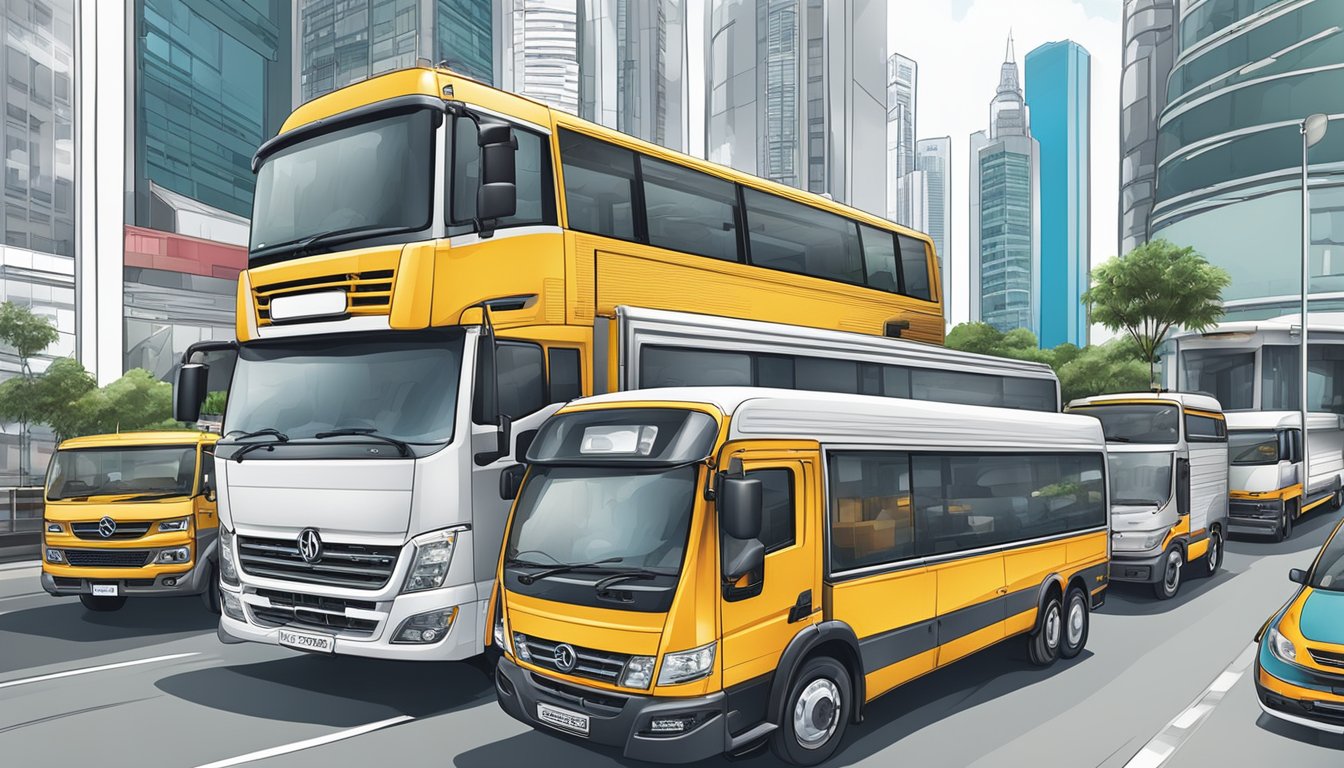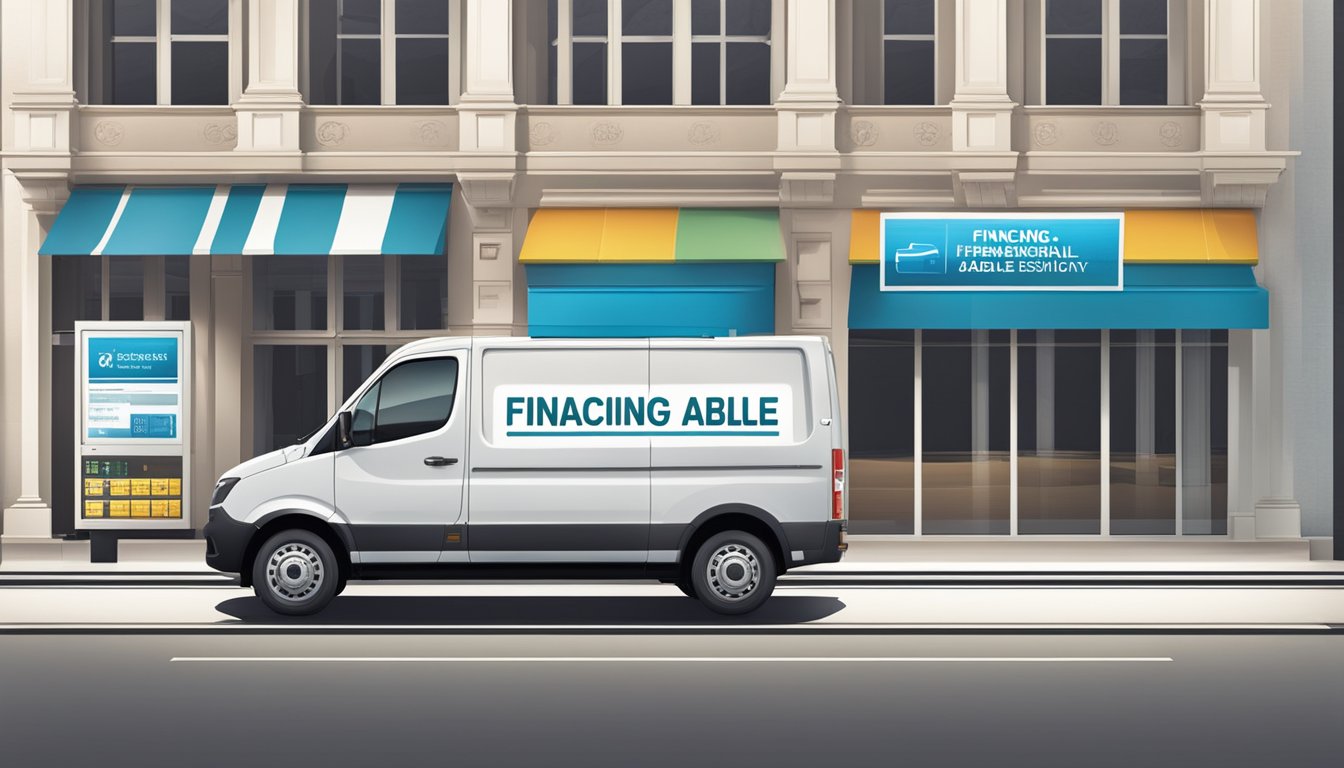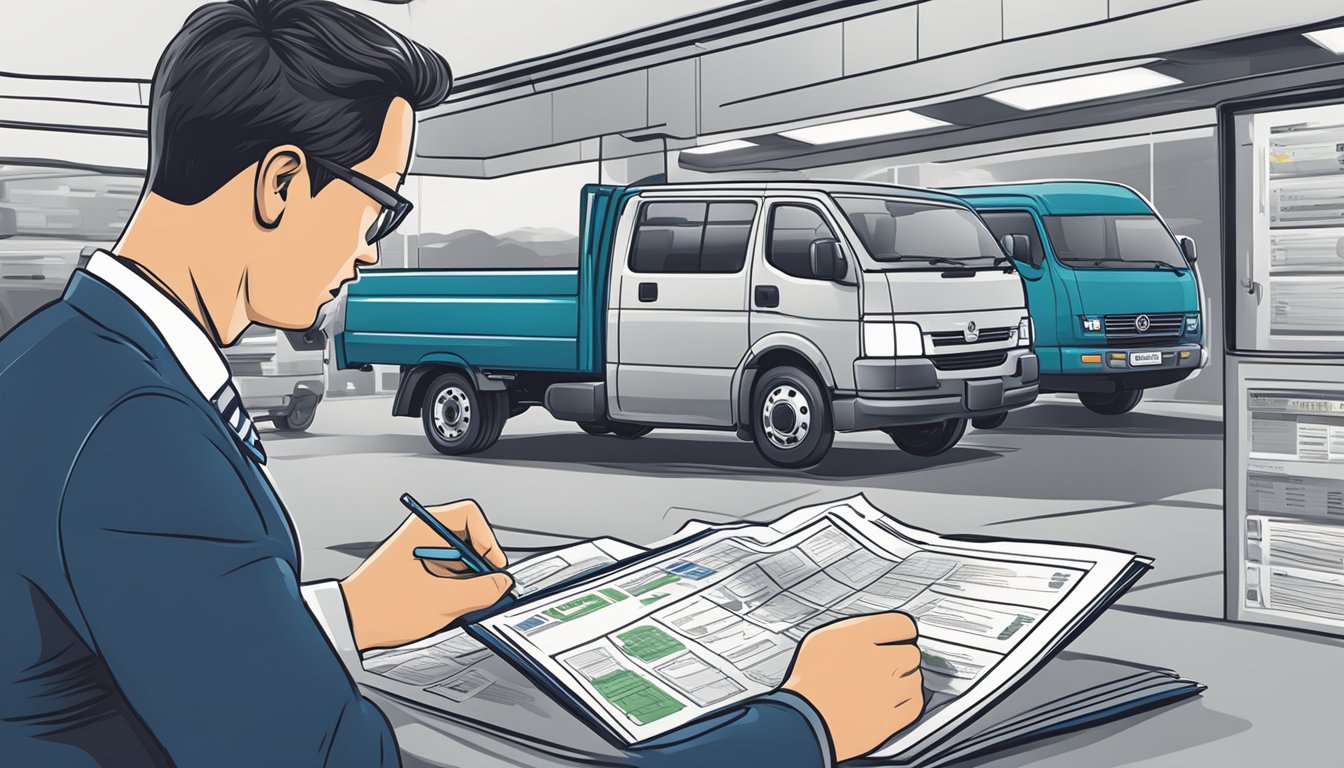If you’re looking to purchase a commercial vehicle in Singapore, you’re in the right place. Whether you’re starting a business or expanding your fleet, buying the right commercial vehicle can help you achieve your goals. However, it’s important to understand the types of commercial vehicles available in Singapore, as well as the regulations and costs involved in owning and operating them.

Firstly, it’s important to know that only registered companies are allowed to purchase commercial vehicles in Singapore. As an individual, you can only buy a commercial vehicle if you hold a hawker licence from the National Environment Agency. There are four main types of commercial vehicles in Singapore: Goods-Cum-Passenger Vehicles (GPVs), Light Goods Vehicles (LGVs), Heavy Goods Vehicles (HGVs), and Very Heavy Goods Vehicles (VHGVs). Each type of vehicle has its own regulations and costs associated with it, so it’s important to do your research before making a purchase.
When it comes to financing and cost considerations, there are several factors to take into account, including the upfront cost of the vehicle, ongoing maintenance and repair costs, fuel costs, and insurance premiums. You may also want to consider leasing or renting a commercial vehicle instead of buying one outright. By understanding the different types of commercial vehicles available in Singapore, as well as the associated regulations and costs, you can make an informed decision that meets your business needs and budget.
Key Takeaways
- Only registered companies and individuals with a hawker licence can purchase commercial vehicles in Singapore.
- There are four main types of commercial vehicles in Singapore, each with its own regulations and costs.
- When considering financing and cost considerations, it’s important to take into account upfront costs, ongoing maintenance and repair costs, fuel costs, and insurance premiums.
Understanding Commercial Vehicle Types and Regulations in Singapore

If you are planning to buy a commercial vehicle in Singapore, it is important to have a good understanding of the different types of commercial vehicles and the regulations that govern them. In this section, we will provide you with an overview of the categories of commercial vehicles, the Certificate of Entitlement (COE) system, vehicle registration and taxation, as well as safety and operational regulations.
Categories of Commercial Vehicles
In Singapore, there are four main types of commercial vehicles: Light Goods Vehicle (LGV), Heavy Goods Vehicle (HGV), Very Heavy Goods Vehicle (VHGV), and Goods-Cum-Passenger Vehicle (GPV). These vehicles are categorised according to their Maximum Laden Weight (MLW). The MLW is the total weight of the vehicle, including its load, passengers, and fuel.
Category C is for LGVs with an MLW of up to 3,500 kg, while Category E is for HGVs and VHGVs with an MLW of more than 12,000 kg. GPVs are for vehicles that carry both goods and passengers.
Certificate of Entitlement (COE) Explained
The COE is a system that regulates the number of vehicles on Singapore’s roads. It is a quota system that limits the number of vehicles that can be registered in a given period. The COE is auctioned off and the highest bidder gets the right to register a vehicle.
COE prices vary depending on the demand for vehicles. The prices can range from $1 to $100,000 or more. The COE is valid for 10 years, after which it must be renewed.
Vehicle Registration and Taxation
All vehicles in Singapore must be registered with the Land Transport Authority (LTA) before they can be driven on the road. The registration process involves obtaining a Vehicle Registration Number (VRN) and a Vehicle Parking Certificate (VPC).
The road tax for commercial vehicles is based on the vehicle’s engine capacity and the duration of the tax period. The road tax must be paid annually.
Safety and Operational Regulations
Commercial vehicles in Singapore are subject to a number of safety and operational regulations. For example, heavy goods vehicles, very heavy goods vehicles, and goods-cum-passenger vehicles are not allowed to be driven on expressways and in tunnels. Oversized vehicles require an Oversized Vehicle Movement (OVM) permit to be driven on the road.
Blind spot safety requirements must also be met by all commercial vehicles. The lifespan of a commercial vehicle is typically 20 years, after which it must be scrapped.
Overall, buying a commercial vehicle in Singapore can be a complex process, but by understanding the different categories of vehicles and the regulations that govern them, you can make an informed decision and ensure that your vehicle is safe and legal to use on the road.
Financing and Cost Considerations for Commercial Vehicles

When considering purchasing a commercial vehicle in Singapore, it’s important to assess your budget and financing options. This will help you determine the maximum lifespan of the vehicle you can afford, as well as the premium price you can pay for vehicle insurance.
Assessing Your Budget and Financing Options
The first step in purchasing a commercial vehicle is to assess your budget and financing options. This will help you determine the maximum lifespan of the vehicle you can afford, as well as the premium price you can pay for vehicle insurance.
In Singapore, financing for commercial vehicles is available up to 90% of the vehicle’s cost. This means that you can get a loan to cover most of the cost of the vehicle, but you will still need to pay the remaining 10% upfront.
Insurance and Additional Costs
When purchasing a commercial vehicle, it’s important to consider the additional costs involved. These may include the vehicle registration fee, the ARF (Additional Registration Fee), and the COE (Certificate of Entitlement) fee.
Vehicle insurance is also a crucial factor to consider when purchasing a commercial vehicle. It’s important to ensure that you have adequate coverage to protect your investment and your business. In Singapore, vehicle insurance premiums are based on factors such as the age and type of vehicle, as well as the driver’s experience and record.
Maximising Value and Longevity
To maximise the value and longevity of your commercial vehicle, it’s important to choose a vehicle that is suitable for your business needs and to maintain it properly. This includes regular servicing and maintenance, as well as keeping the vehicle clean and in good condition.
Registered companies in Singapore can also enjoy additional benefits, such as tax deductions and rebates. It’s important to consult with a financial advisor to determine the best financing and tax options for your business.
Overall, purchasing a commercial vehicle in Singapore requires careful consideration of your budget and financing options, as well as the additional costs involved. By choosing a vehicle that is suitable for your business needs and maintaining it properly, you can maximise its value and longevity.
Frequently Asked Questions

What steps should you take to purchase a commercial vehicle for your business in Singapore?
If you’re looking to purchase a commercial vehicle in Singapore, you should start by identifying the type of vehicle that will best suit your business needs. Once you’ve identified the type of vehicle, you should research the different dealerships and financing options available. You should also consider the costs involved in owning and maintaining a commercial vehicle, such as insurance, road tax, and maintenance costs.
Can you acquire a used commercial vehicle in Singapore and what should you look out for?
Yes, you can acquire a used commercial vehicle in Singapore. When purchasing a used commercial vehicle, you should ensure that it is in good condition and has been well-maintained. You should also check the vehicle’s service history and ensure that it has been regularly serviced and maintained.
What are the advantages of registering a vehicle under your company’s name in Singapore?
Registering a commercial vehicle under your company’s name in Singapore has several advantages. Firstly, it allows you to claim tax deductions on the cost of the vehicle and its maintenance. Secondly, it provides liability protection for your business, as any accidents or damages caused by the vehicle will be covered by your company’s insurance policy. Finally, it helps to establish your business’s credibility and professionalism.
Is it possible to use a commercial vehicle for personal needs in Singapore?
No, it is not possible to use a commercial vehicle for personal needs in Singapore. Commercial vehicles are only allowed to be used for business purposes and cannot be used for personal transportation.
How do you distinguish between a light goods vehicle and other types of commercial vehicles in Singapore?
In Singapore, light goods vehicles are classified as vehicles with a maximum laden weight of 3,500kg. Other types of commercial vehicles include goods-cum-passenger vehicles, heavy goods vehicles, and very heavy goods vehicles. You can distinguish between these types of vehicles based on their weight and size.
What are the essential criteria for goods-cum-passenger vehicles classification in Singapore?
Goods-cum-passenger vehicles are classified as vehicles with a maximum laden weight of 5,000kg and a seating capacity of up to 15 passengers. To be classified as a goods-cum-passenger vehicle in Singapore, the vehicle must meet these criteria and be registered as such with the Land Transport Authority.




